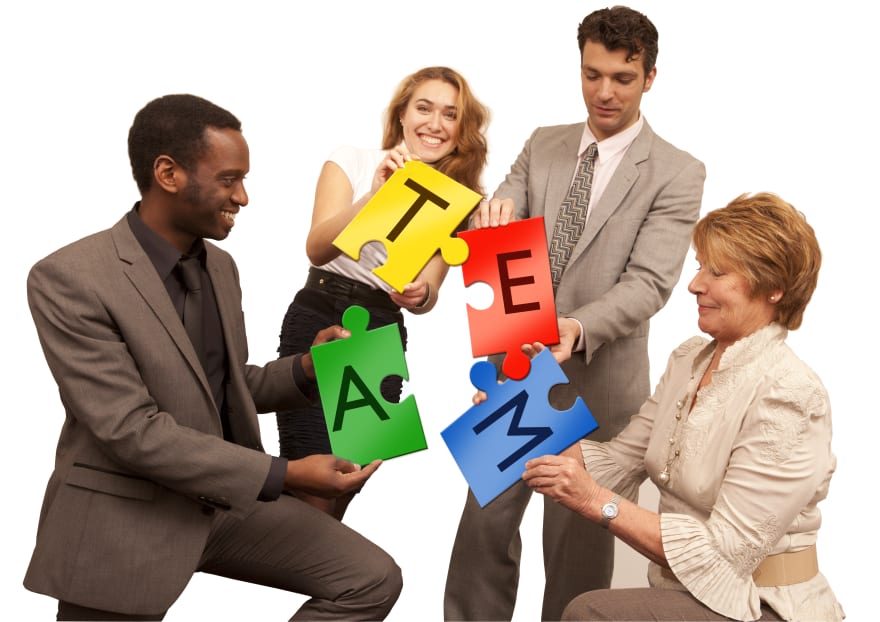Being a programmer in 2021 is not the same as ten years ago. The world is constantly changing, and many of the skills that were important back then have faded into the background over time. And what skills should a developer have in order to remain a sought-after specialist, for example, in five years? If you don't have them, maybe you should think about their development now?
In this post, I want to talk about skills that will help you stay in demand as a developer even in conditions of constant change. Usually, IT specialists rely on the scientific and technical base, which is important for understanding the functioning of the system as a whole. This includes knowledge of the operating principles of the OS, the network stack, databases, and the mathematical apparatus that underlies any algorithm or protocol, etc. However, hard skills alone are not enough — communication skills, the ability to build a workflow with a team and/or strangers, flexibility in decision-making, and other soft skills are also needed. Moreover, it is important not just to have the — soft skills that should be integrated into the overall development process and go in close conjunction with professional skills. Seven of them will be discussed today.
1. Comprehensive problem solving
The demand for specialists who are able to approach the task from different sides is steadily growing. Most people cannot solve complex problems because they often use technologies aimed at the process, not the result. A developer using an integrated approach can not only identify the problem, but also determine its causes, and most importantly, "calculate" further steps.
Self-test:
- Colleagues complain about a recurring problem. If it arose in your team, where would you start solving it?
- Do you calculate the possible risks when choosing a certain solution?
- How to understand that you are really solving the problem, and not eliminating its "symptoms"?
2. The ability to convince
The ability to convince — that is, to present your idea, make arguments and tell a story so that listeners are passionate - is necessary not only for those who constantly communicate with clients. This skill will help to defend your point of view, inspire like-minded people. And in order for colleagues to listen to you not out of politeness, but attentively and intently, it is highly desirable to make your story not only convincing but also interesting.
For example: when preparing a presentation about a release, you try not to load your colleagues with a dry list of facts with technical details, but build a story: add explanations, vivid examples, think about how you will manage the attention of listeners, and prepare arguments for answers to possible questions.
Self-test:
- Have you noticed that you are interrupted at meetings? Was there a feeling that no one was listening to you?
- Do you try to give illustrative cases when defending your point of view?
- How will you start the story about yourself? Rehearse a small speech.
- Remember the case when, after a conversation with you, a colleague changed his mind. What exactly helped you convince him?
- How do you respond to objections?
3. Cooperation and teamwork skills
I think many will agree that the community plays a significant role in the IT environment: experienced developers help colleagues and willingly share their experiences. Nevertheless, there is a stereotype that it is normal for a programmer to be closed, but it is difficult to interact with a closed person since he almost never offers ideas and is not inclined to discuss current processes. Therefore, more and more companies are paying attention to whether a specialist is able to work in a team, whether he understands colleagues as well as the project itself, whether he is able to give and receive feedback.
Self-test:
- You need to talk to a colleague you didn't know before. Where will you start?
- One of the team members repeatedly passes the work with errors. What will you do?
- What words will you choose to make the criticism sound friendly?
- Do you celebrate the successes of your colleagues and talk about them publicly?
- What helps you feel the mood of the interlocutor and tune in to his wave?
4. Ability to plan your work
Employers value specialists who are able to plan, give accurate estimates of the complexity of tasks and adhere to deadlines regardless of the language, technologies, and methodologies used.
Example: to organize the work of a group (if you are a leader) or your own, you plan sprints, make sure that there is a time interval between the task and the solution, which will allow you to organize things and prioritize. During the day, you stick to what you have planned and do not get distracted by other requests so that the work becomes more calm and predictable.
Self-test:
- You are asked to name the deadlines for the project's readiness. What will guide you in the assessment?
- It's the middle of the working day, and suddenly a colleague sends you a link. You know that there is a useful and important article there. What will you do?
- Do you make work and personal plans for the day/week/month? How many of them can be completed?
- Are you familiar with the Eisenhower matrix time planning method?
- Do you know how much time it takes you on average for each type of task?
- How many minutes/hours a day do you spend on social media? Do you track these statistics in any way? Do you use time trackers?
- Do you practice taking a break from social networks and the Internet, digital detox?
5. Critical thinking
The ability to think critically is one of the key skills in our time. In a world where knowledge is power and the flow of information increases exponentially, you need to be able to ask questions, compare data and be critical of what others write. If we talk about professional development, critical thinking allows you to determine which set of skills you need. Someone needs clean code, knowledge of the version control system, and system thinking to work, and someone who is engaged in high-tech projects needs deep immersion in special sections of mathematics or physics.
Self-test:
- Do you think when reading materials on the Internet about who publishes them and for what purpose?
- How do you determine which information can be trusted? What criteria do you rely on when choosing information sources?
- Do you check website addresses and connection security when clicking on unfamiliar links?
- Do you have a list of trusted sources of information?
6. Continuous learning — long life learning
Many leading companies seek to hire full-stack developers who work freely with different technologies and platforms. Such specialists understand the principles of any development, starting from the network core level and ending with the interface level. This is impossible to achieve if you do not make it a rule to constantly learn new things. A sought-after developer is determined not only by the possession of a rare stack but also by the ability to easily "switch" between different languages and the desire to learn new tools every day.For example: although Java and C# have occupied a significant part of the market for several years, IT companies are increasingly using newer technologies (Kotlin, Swift, etc.). And, logically, developers who are proficient in several languages will give odds to those who are familiar with one or two technologies. In five years, new stacks will surely appear, so to remain in demand, it is important to constantly learn and be able to choose the right tool for solving a specific task, based on a comprehensive analysis of factors.
Self-test:
- Do you participate in the development of open-source projects? How many commits have you made over the past year? How many bugs and suggestions have you created in the tracker? How many questions were answered?
- How long have you been studying an unfamiliar technology for yourself?
- What would you do if you found out about the emergence of a new language that is gaining popularity?
- How do you react if you are offered to go to a training event?
- What professional conferences do you attend?
- What have you learned in your professional field over the past six months?
7. Compliance with work-life balance
Compliance with work-life balance and your well-being directly affect productivity: those who take care of themselves usually live longer, work more efficiently and have time to pay due attention to other important matters. The topic of health is closely connected with all spheres of life, including work. I won't say anything about biohacking and implanting chips under the skin (this is the topic of a separate post — or even more than one), this item is more about attention to the body, to the psycho-emotional state, and also that the separation of personal and professional life helps them mutually support each other. Try to be more tolerant of others, especially if their point of view contradicts yours, express feelings without harming others, and be aware of what you can influence and what you can't. Find a hobby to your liking and remember that your career success will partly depend on how your life is organized after work and study.
For example: in order to feel cheerful and have more time, you go to bed on time, do not use the phone two hours before bedtime and do not grab it first thing in the morning, do not overeat. Thanks to this, you stay attentive and energetic longer.
Self-test:
- When was the last time you underwent a comprehensive examination?
- What do you do to ensure that your diet is balanced?
- How many hours a day do you sleep? Do you get enough sleep? If not, what can you do now to improve the quality of your sleep? In the morning you feel cold, but you need to go to work. What will you do?
- Do you work on vacation? Do you finish projects on weekends? Do you write to work chats in the evenings?
- What are your hobbies? Have you been interested in something new for yourself for a long time?
This skill set does not appear with birth and is not strictly mandatory. But the development of these skills will not only give you success in work or in a team but will also make your life much better.
Put on Heart if you liked it and you learned something new!
You can also follow ME to receive notifications about new interesting articles.
FAQ
I am a beginner, how should I learn Python?
Look into the following series:
Learning Python
Step by Step to Junior
Ideas
Can we cooperate with you?
If you have interesting projects and you need a python (web)developer, then you can contact me by mail or discord and LinkedIn for cooperation
Connect to me on










Top comments (0)